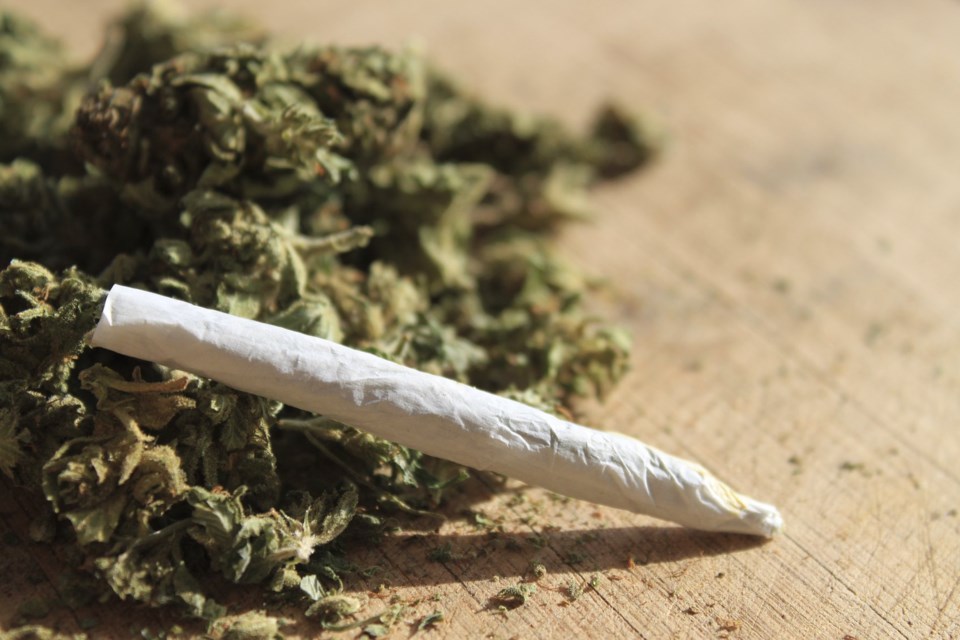As the legalization of marijuana approaches, school councils are bracing themselves.
Calgary Police Service and representatives from Alberta Adolescence Recovery Centre (AARC) gave a presentation on drug awareness at Mitford School’s parent council meeting in November to arm parents with tips to determine if their child is using the drug and how to address it.
One of the biggest concerns from AARC is the effect of the drug on youths’ developing brain, said Jennifer Allen, a clinical counsellor with the organization.
During adolescence up until the age of 25, the brain undergoes a maturation process making it vulnerable to stressors according to a paper published by the Canadian Psychiatric Association in February 2017.
The paper states that cannabinoids from cannabis can negatively impact the endocannabinoid system, which is a biological process of the brain recognized as an important regulatory role in the secretion of hormones related to reproductive functions and response to stress. The chronic use of cannabis affects aspects of cognition, including attention, memory, processing speed, visuospatial functioning and overall intelligence.
“We’ve had far too many cases of drug use psychosis,” Allen said, explaining that the psychosis can present itself as regular symptoms of a marijuana high, but left untreated could result in full-blown schizophrenia.
“Their (brains) are incredibly fragile until the age of 25 and I think people forget that.”
There are many signs a parent, teacher or other adult can look out for in a child, Allen said. Some of the obvious ones include the smell of the drug on them, red eyes and a change in appetite.
Behavioural changes can also be a red flag including lack of personal hygiene or a change in appearance. Other changes to look out for are little eye contact or keeping their heads down, avoiding verbal conversations to prevent revealing slurred speech or difficulty with articulation, going straight to the back of the classroom or not coming out of their bedrooms for dinner.
Allen said it’s possible to have a child who a parent or teacher once had an open and honest relationship shift into a new attitude.
“All of a sudden now they’re doing things behind your back – the parent will feel disconnected from the kid at that point,” she said. “You’ll find they’re suddenly quite defiant, they’ll feel like they no longer have to adhere to the parameters of their family and also of society – that’s when petty crime and things like that can start.”
Approaching your child openly and straightforwardly is the best route Allen said, adding that the scare tactics, such as telling kids they’ll die or get brain damage from trying drugs, don’t work.
“The first time they try it and they really like it, it kind of discredits something they heard before that,” she said. “Talk to them about the long-term effects – it doesn’t happen over night.”
Allen is also concerned about the message that legalization of the drug sends to youth.
“There’s a level of inviting, a level of making it OK. And on a standpoint of someone who deals with adolescent addiction, it’s incredibly scary.”
Jaimie Anton, chair of the Mitford School council, said the presentation was useful since one of the biggest concerns parents have with the upcoming legalization of marijuana is how to approach their children.
“I think its just trying to find out the best way to talk to their kid, how best to bring up the information with their kids, and what the approach might be,” she said.
“I think from a parent’s point of view it’s really getting the conversation going and really making sure that really as a community we’re looking after all the kids.”
So far, the framework Alberta has come out with to respond to the legalization of cannabis resembles that of alcohol and tobacco. It includes restricting the age to purchase to 18 and not packaging or promoting cannabis in a way that may be appealing to youth.
Alberta is also taking a zero tolerance approach meaning youth cannot possess more than five grams of cannabis. If caught with more, the youth won’t be subject to criminal charges since that may impede their future, but parents or guardians will be notified and the cannabis will be seized.
Adult cannabis users will be restricted from smoking marijuana in areas frequented by youth such as playgrounds and zoos.




